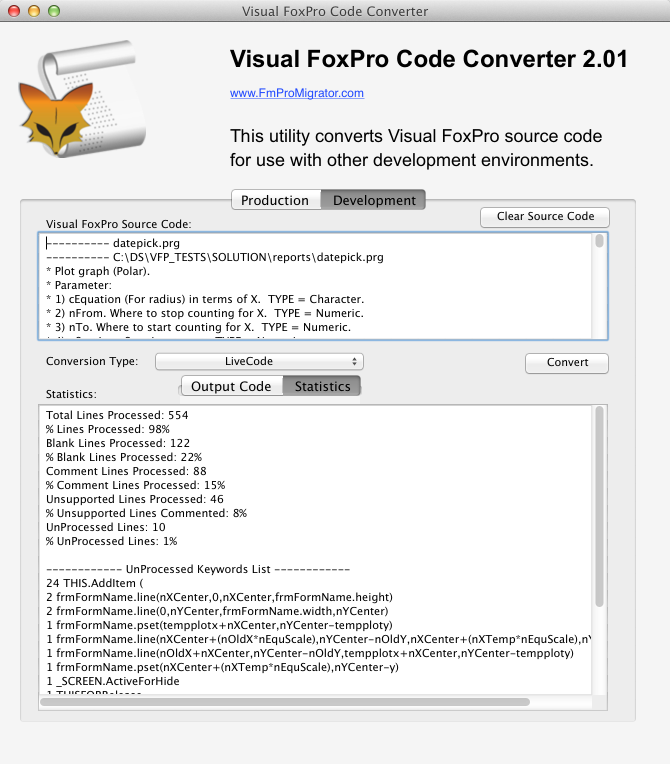I asked a few of our supporters for the HTML5 project to tell me why they had backed us and what HTML5 meant to them. Here is what they told me.
 Jacqueline Landman Gay
Jacqueline Landman Gay
Jacqueline Landman Gay is a LiveCode Guru of longstanding, with roots in the HyperCard community. She owns HyperActive Software and keeps parrots.
For the last year and a half I have been working on a huge project that interacts directly with a web server for most of its content, and involves hundreds of stacks and thousands of cards, images, and multimedia files. The scripts that support this program are long and complex. Moving this monster to a browser right now isn't feasible; if the task were undertaken it would require a complete rewrite for the web, and would certainly cost many times more than the LiveCode development did.
But with HTML5 support in LiveCode we would need to do very little to place this behemoth on the web. All the content is already set up, and the only thing missing is the ability to display the stacks directly in a browser. When we can run the same code on any platform, including the web, we can deploy to everyone, anywhere with minimal additional effort. The doors that will open with HTML5 support are limited only to our imaginations, and I am very much looking forward to imagining all kinds of things.
 Susan Bright Nguyen
Susan Bright Nguyen
Susan is a musician who loves coding. She received her Bachelor of Music degree with honors from the University of Colorado at Boulder (her home town). She has a full teaching studio in Saratoga, California, and spends as much spare time as she can creating music theory apps. (Her students are her best beta testers.)
I have been using Livecode to develop music theory apps for some time now, and they have been well received. As a long time music teacher, I know just what theory musicians and music students need to know, and how to instruct them. Most people are surprised when they find out I actually do the coding for the apps. That is the fun part for me, and I am grateful for the easy to learn Livecode platform that makes it possible for me to do this.
HTML5 will enable me to implement all my music theory tutorials directly on my website. Users will no longer need to download multiple apps on mobile devices, but will be able to access all the different tutorials in one place. I am forecasting that, with a reasonable monthly subscription fee, I will be able to generate greater income than I might with mobile deployment alone. This is a dream I've had for several years, and I'm excited that it may soon become a reality.
 Cyril Pruszko
Cyril Pruszko
Cyril Pruszko is a teacher in the PG County School System.
HTML5 is exciting to me as a teacher. I think it will change the way we teach computer programming in the schools.
We start students out with HTML before doing LiveCode. It is an easy and effective way to introduce them to computers and basic programming. After creating their own webpage they have a feeling of pride, confidence and enthusiasm to to go on to learn a formal programming language. We use LiveCode because it is the ideal language for new learners.
It teaches the constructs and concepts without the burden of undue syntax, strange rules or overall complexity. Typically the students write programs sooner, easier and more sophisticated than with other languages. They tackle projects that are exciting, fun and more involved than they would have with other languages. It is easy because it writes like you talk. Not one student complains or gives up. They just do it. They create. They learn. They are enthusiastic and enjoy programming more. They want to go on and learn more as well as other languages. Even the girls!
After teaching LiveCode, it would be exciting to go back to their webpages and make them interactive, more exciting and more complex using the programming skills they just learned. They could add content to their webpages to match even the professionally done ones they see on the web. They do not need to learn Javascript (which is not necessarily easy to teach )
It would also be fun to transfer the programs and games they have just written to the web. That would make it easier for them to show their parents, friends and relatives what they have done without the problems of distribution (messing with flash drives, emailing large files, etc) . It would allow them to show the world what they have done without the difficulties and restrictions of publishing them through the App stores (Apple and Google). It would allow other students all over the world to try their programs and provide feedback. It would encourage dialog, collaboration and develop friendships. It would allow educators to have fun contests, assemble world teams or do collaborative projects with classes in other countries. For the student, it would open up their worlds and the world to them.
In short, HTML5 is a game changer - educationally, globally and for programming itself.
 Scott Rossi
Scott Rossi
Scott Rossi provides user experience design services and specializes in custom interface design. Over the past 20+ years, Scott has worked with a wide range of companies including Apple, Hewlett Packard, Intuit, Logitech, and Sony. His full client list is buried somewhere on his desk.
One of the most appealing aspects about LiveCode and HTML5 is the
possibility of being able to create mobile apps that can bypass the
various app store submission processes. Combined with the potential of
speedy Javascript execution, I look forward to more easily creating
browser-based games, simulations, and educational stacks. And it will be
a great day when I can finally create an animated client demo without
having to rely on Flash. HTML5 would make LiveCode truly deployable
everywhere. So for sure I'm backing the HTML5 campaign.
 David Simpson
David Simpson
David Simpson is the president of .com solutions inc, and a LiveCode developer of database applications since 2001.
The first app I would like to implement using the LiveCode HTML5 deployment feature is a demo of my Visual FoxPro Code Converter app. A previous version of this app was deployed using the LiveCode revLet plugin on my website. [In fact, the Windows version of the revLet is still working on my website to this very day (if the browser plugin has already been installed in IE). But the Mac OS X version of the revLet no longer runs. Therefore the need for HTML5 deployment is evident.
The Visual FoxPro Code Converter converts Visual FoxPro PRG code files into a variety of development environments. Visual FoxPro is a legacy development tool discontinued by Microsoft several years ago. Therefore Visual FoxPro developers visit my website looking to automate the conversion process to other development tools. This app enables Visual FoxPro developers to test the conversion efficiency of the code conversion process before making a purchase. Visual FoxPro developers will be able to paste in sample code, click a button, and instantly see the converted code and conversion statistics.
I intend to enhance this app by using a single code base instead of manually copying code between desktop and web versions of the app. For instance, I expect to be able to use code like the following to change the feature set when running on the web:
if the environment is "HTML5" then
-- (web demo mode)
end if
This app has a very simple GUI consisting of a few Tab Panels, fields, text labels and buttons. Therefore the GUI could be suitable for deployment using web canvas to provide compatibility with the widest range of web browsers.
There are about 3000 lines of LiveCode scripting in the app, providing a good test case for the conversion of LiveCode to JavaScript.
